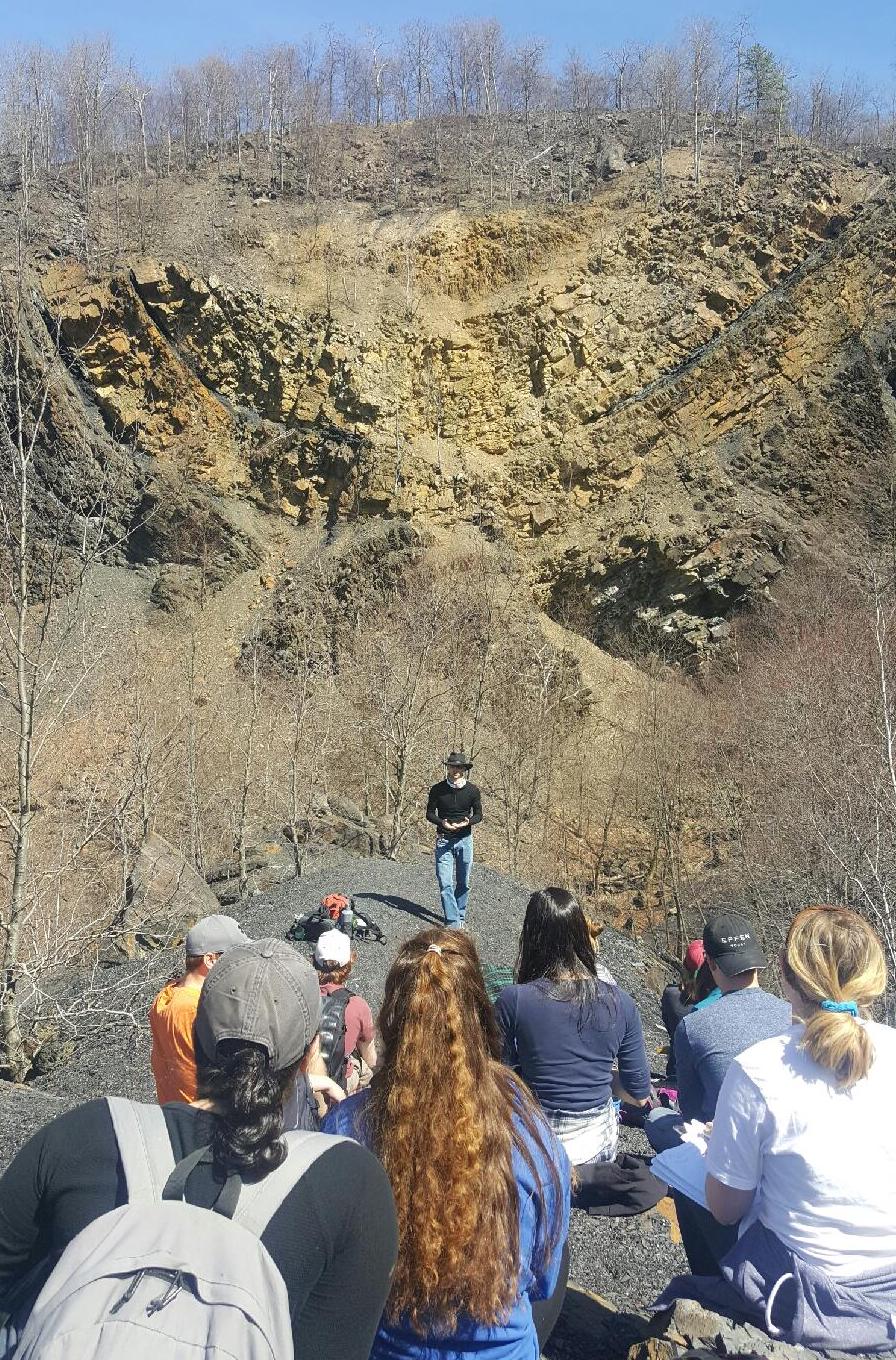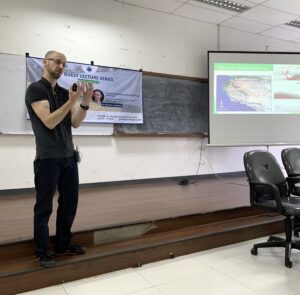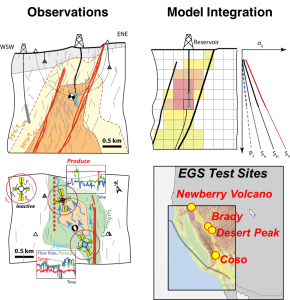
Structural Geology field trip to Bear Valley. We are sitting on an isoclinal anticline aligned along trend with a syncline.
Teaching Interests
My teaching involves hands-on, open-ended projects that require students to make decisions about how to define their research goals, develop hypotheses, and to gather and organize data. Thus, the students conduct their own investigations using published data, analog experiments, fieldwork, and in class demonstrations. I emphasize quantitative analysis and require that the students independently develop methods to both gather their data and test relationships among experimental variables after preparing them through a combination of lecture and guided discussion in the classroom. I encourage students to extend their classroom work into independent study. Mentoring students toward scientific independence and informed, critical decision making is one of my primary goals.
In addition, I broaden the impact of my research and teaching through outreach to the community. As manipulation of fluid pressure deep in the earth becomes commonplace to supply a growing demand for energy, the public must have the information and understanding to make informed decisions. Such manipulations govern the behavior in a variety of critical systems that have been receiving increasing attention in the news and legislation including: (1) Hydrofracking, (2) Waste Water Injection, (3) Hydrocarbon Production and Enhanced Recovery, (4) “Hydroshearing” in Enhanced Geothermal Systems, and (5) CO2 sequestration. Key concepts appear to be missing or distorted in current discussions concerning human impacts inluding earthquakes, contaminant transport, and the availability and potential for recovery of resources such as: (1) basic concepts of the scientific methods applied to inverse problems; (2) basic understanding of the geologic and hydrologic context as well as stresses in the earth; (3) the meaning of scientific uncertainty; (4) the scales of pressure and volume change involved in stimulation and reservoir management through the basics of dimensional analysis. I am actively developing outreach that involves hands-on physical experiments with school children ranging in age from elementary through high school to teach these concepts.

Guest lecture on geothermal resources at ITB, Bandung, Indonesia.
Courses
Lecture/Lab:
- Structural Geology (undergraduate/graduate) introduction to geological structures and mechanics
- Quantitative Structural Geology (graduate) continuum mechanics concepts and tools in structural and geomechanical analysis
- SERC: Science of Energy Resource Consumption (a.k.a., Energy versus Society)(undergraduate)
- Geology versus Hollywood (a.k.a., Geollywood, undergraduate) introduction to natural hazards contrasted with popular depictions
- Introduction to Data Visualization and Analysis for Earth and Environmental Science (undergraduate) introduction to data management, analysis, and visualization
- Borehole Geophysics in Geothermal Systems (RES School, graduate) borehole geophysical tools and analysis of their data sets
Seminar
- Fragile Future to Sustainable Society (undergraduate: welcome and overview to major themes in Earth and Environmental Research at Temple University)
- College of Science and Technology First Year Seminar (undergraduate) how to college for first year students
Other:
- Short Course on Geothermal Energy Development (first taught, Ilya State University, Earth Sciences Institute, Field Station, Stepantsminda, Country of Georgia)
v2022-12-12, © Nicholas C. Davatzes, 2022

